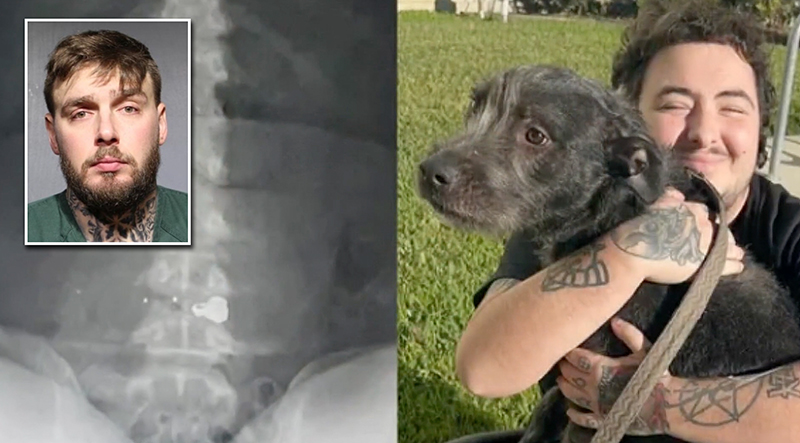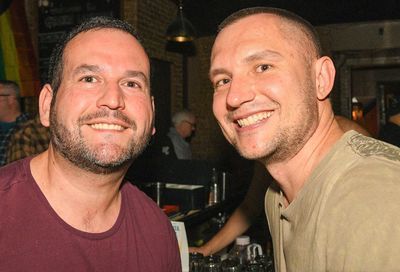Miami-Dade School Board Rejects LGBTQ History Month
Dozens of Christians flooded the meeting, claiming that recognizing LGBTQ History Month violates their parental rights and religious beliefs.

The Miami-Dade School Board rejected a resolution to recognize October as LGBTQ History Month.
The board voted 5-3, with one member absent, to reject the resolution, which was introduced by Board Member Lucia Baez-Geller. It’s the third year in a row the resolution has been squashed.
The resolution would have recognized the historical contributions of LGBTQ Americans, but would not require those contributions to be taught in schools, nor require students to participate in any LGBTQ-themed events.
Even backers of the resolution noted that it would largely be symbolic, intended to make LGBTQ students feel included as members of the school community, without carrying any policy implications, reports the Miami Herald.
Baez-Geller, who is running for Congress against Republican U.S. Rep. Maria Elvira Salazar in a district that contains some of the county’s historically gay neighborhoods, asserted that the resolution would “foster a welcoming school climate where LGBTQ students, families, and educators can live their authentic lives and be treated with dignity and respect.”
Baez-Geller also noted that the proposed resolution is legal under a settlement reached by the state of Florida, in which state officials acknowledged that there are limitations on how the state’s “Don’t Say Gay” law may be enforced.
Board Member Danny Espino argued that, regardless of the proposal’s legality, he would not support the resolution, arguing that it infringes on parents’ right to shield their children from knowledge of LGBTQ existence.
“It’s a slippery slope that will replace parental consent with government consent,” he said.
The hours-long meeting was highly chaotic, as dozens of Christians flooded the school board meeting to object to the proposal, arguing that LGBTQ identity should neither be discussed — even in academic work like sexual education, biology, or history — not celebrated in schools, and that doing so was a form of “left-wing indoctrination.”
Board Chair Mari Tere Rojas was frequently forced to interrupt speakers and tried to calm down disruptions from audience members opposed to the resolution. One woman had to be escorted from the auditorium.
Marsha Hertig, who spoke against the proposal, argued that celebrating LGBTQ History Month “is not right in the sight of God. He made us male and female and told us to reproduce.”
A speaker in favor of the resolution, school board candidate and former State Rep. Joe Geller, who is running for Baez-Geller’s (no relation) open seat, argued that the resolution does not violate the “Don’t Say Gay” law and would allow vulnerable populations, such as LGBTQ youth, to feel accepted by the school community and protected from discrimination.
Over the past three years, LGBTQ material in curriculum and library materials has become a contentious issue in Florida, with conservatives claiming that LGBTQ-related topics have no place in schools. Some right-wing activists have even filed complaints with police seeking to prosecute school librarians who allow LGBTQ-themed books to be checked out on charges of allegedly distributing “pornography.”
Prior to the introduction of a slew of anti-LGBTQ legislation — including the “Don’t Say Gay” law, a transgender sports ban, book bans, and restrictions on the type of medical treatments that transgender youth may receive — recognizing LGBTQ History Month was not considered a controversial move. As recently as 2021, the school board approved similar resolutions without incident.
But the county has shifted rightward politically, with Republican-backed candidates winning seats on the school board. In 2023, before the board rejected the proposed resolution, members of the far-right group the Proud Boys showed up at the school board meeting to register their objections and stir up anger among conservative attendees.
Other jurisdictions in Florida have recently approved similar measures to recognize LGBTQ History Month without the controversy that the issue appears to generate in Miami-Dade County. Those include nearby Broward County, home to Wilton Manors and Fort Lauderdale; Orange County, home to Orlando; Hillsborough County, home to Tampa; and Palm Beach County, home to West Palm Beach and Boca Raton.
Support Metro Weekly’s Journalism
These are challenging times for news organizations. And yet it’s crucial we stay active and provide vital resources and information to both our local readers and the world. So won’t you please take a moment and consider supporting Metro Weekly with a membership? For as little as $5 a month, you can help ensure Metro Weekly magazine and MetroWeekly.com remain free, viable resources as we provide the best, most diverse, culturally-resonant LGBTQ coverage in both the D.C. region and around the world. Memberships come with exclusive perks and discounts, your own personal digital delivery of each week’s magazine (and an archive), access to our Member's Lounge when it launches this fall, and exclusive members-only items like Metro Weekly Membership Mugs and Tote Bags! Check out all our membership levels here and please join us today!



























You must be logged in to post a comment.